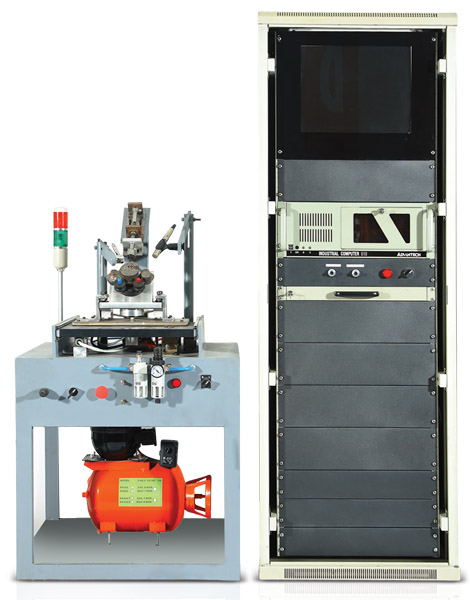Acoustic Resonant Inspection (EddySonic-ARI)
 Theory
Theory
Acoustic resonant inspection (ARI) is based on the analysis of the natural frequencies of a part. The presence of structural defects causes shifts in these frequencies, changes in damping factors, or nonlinear effects such as generation of new frequencies. By precisely measuring these changes, various structural defects can be detected. More…
Description
ARI offers rapid and inexpensive method of 100% inspection of parts. Every part has a unique resonant signature and any deviation from the expected signature indicates the presence of a flaw. To excite the structure and cause it to vibrate an impact hammer is used. During calibration or learning, a database of reference parts including good and different defective parts is made. Then ARI generates a “decision module” based on advanced statistical methods and classification algorithms to sort the parts. More…
Applications
ARI is designed to detect defects such as Cracks, Cavity, Cold shuts, Hardness deviations, Low nodularity, Residual stress, Out-of-tolerance dimensions. Equipment features high speed, accurate and repeatable measurements, easy to use and user friendly interface and advanced data modeling to accurately classify parts as good or defective. More…